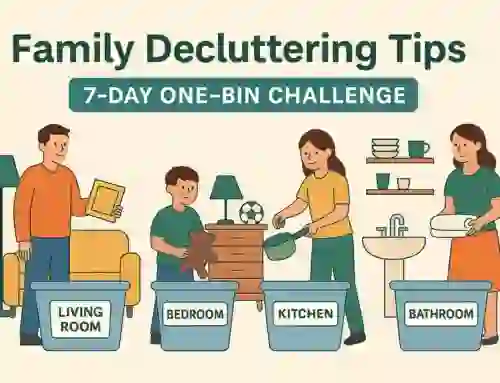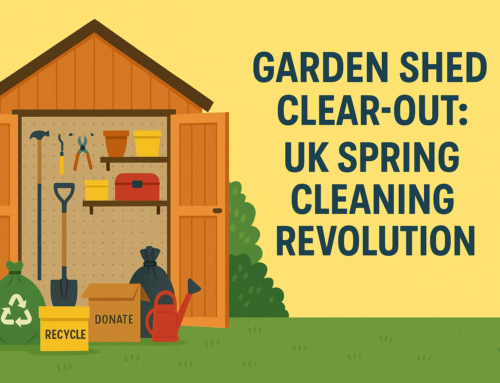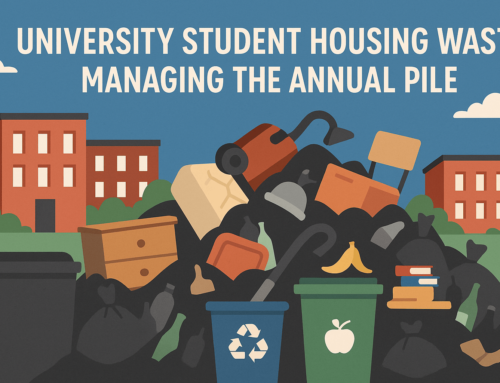From 31 March 2025, new rules will make businesses sort recycling from waste in England. The Government’s Simpler Recycling plans aim to increase recycling and cut down on landfill and incineration.
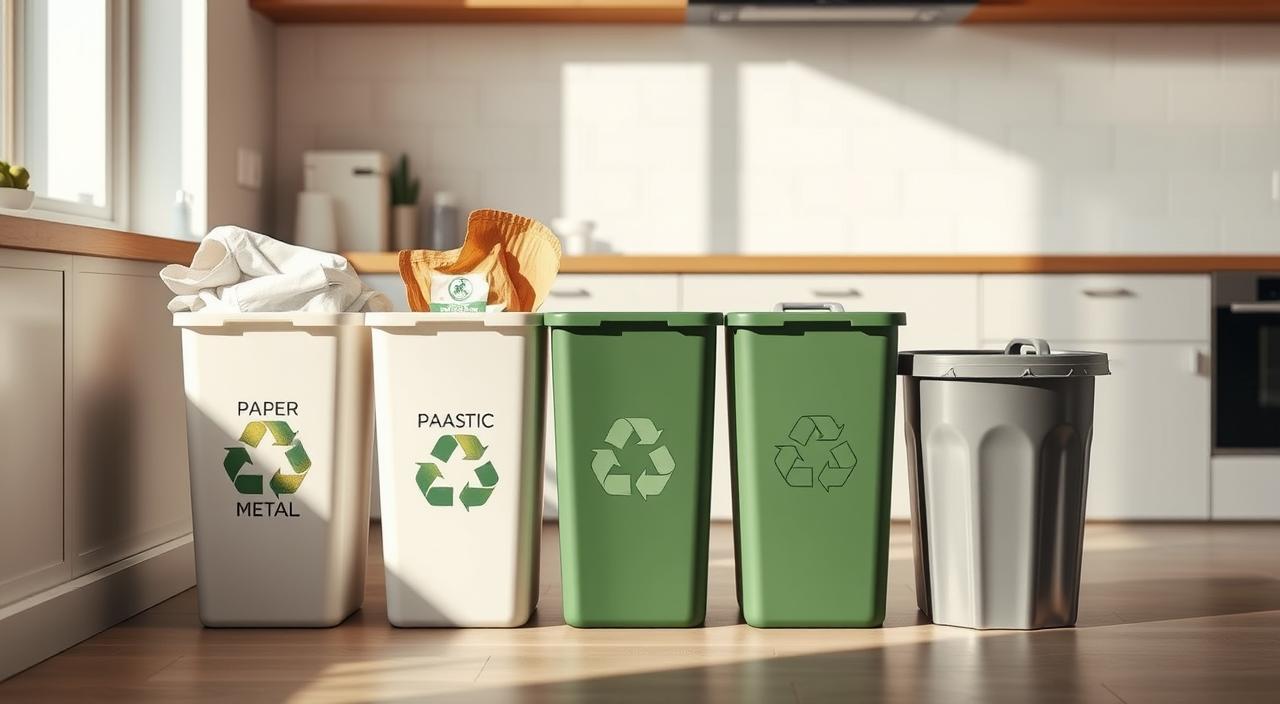
Londoners and businesses in England will soon use a new four-bin system for waste sorting. Workplaces with 10 or more employees must sort dry recyclables, food waste, and residual waste. It’s important to understand these changes to avoid penalties.
Key Takeaways
- New regulations for waste sorting will be enforced from March 2025.
- Businesses with 10 or more employees must comply by March 2025.
- Micro-firms have until March 2027 to comply with the new regulations.
- The four-bin system aims to improve recycling rates.
- Proper waste sorting is essential for environmental compliance.
Understanding the New Four-Bin System
England is set for a waste management revolution with the new four-bin system in 2025. This change aims to standardize recycling practices, making it easier for everyone.
What Is Changing in 2025?
From 31 March 2025, workplaces in England will sort waste into three categories: dry recyclables, food waste, and non-recyclables. Dry recyclables include plastic, metal, glass, paper, and card. Paper and card must be collected separately unless a written co-collection assessment is done.
Businesses with 10 or more employees must start immediately. Micro-firms have until 31 March 2027 to adapt.
Timeline for Implementation
Local authorities will be key in introducing the new system. By 31 March 2026, they must collect recyclable waste streams from all homes, including weekly food waste collections.
The Environment Agency will enforce these rules, issuing notices to non-compliant businesses. This standard approach aims to improve efficiency and cost-effectiveness for all.
Why the UK Is Implementing New Recycling Rules
The UK government is introducing new recycling rules to boost recycling rates. Despite efforts, recycling rates in England have stayed around 44-45% since 2015. The goal is to recycle 65% of municipal waste by 2035.
Current Recycling Rates and Challenges
The UK’s recycling rates have not improved due to several issues. Inconsistent collection systems and confusion over recyclable materials have led to contamination. This makes recycling harder.
- Inconsistent collection systems across different local authorities
- Confusion among residents and businesses about recyclable materials
- Contamination of recyclable materials
Environmental and Economic Benefits
The new recycling standard will bring big wins for the environment and economy. It aims to cut down on greenhouse gas emissions. It also plans to boost the reprocessing industry and create more green jobs.
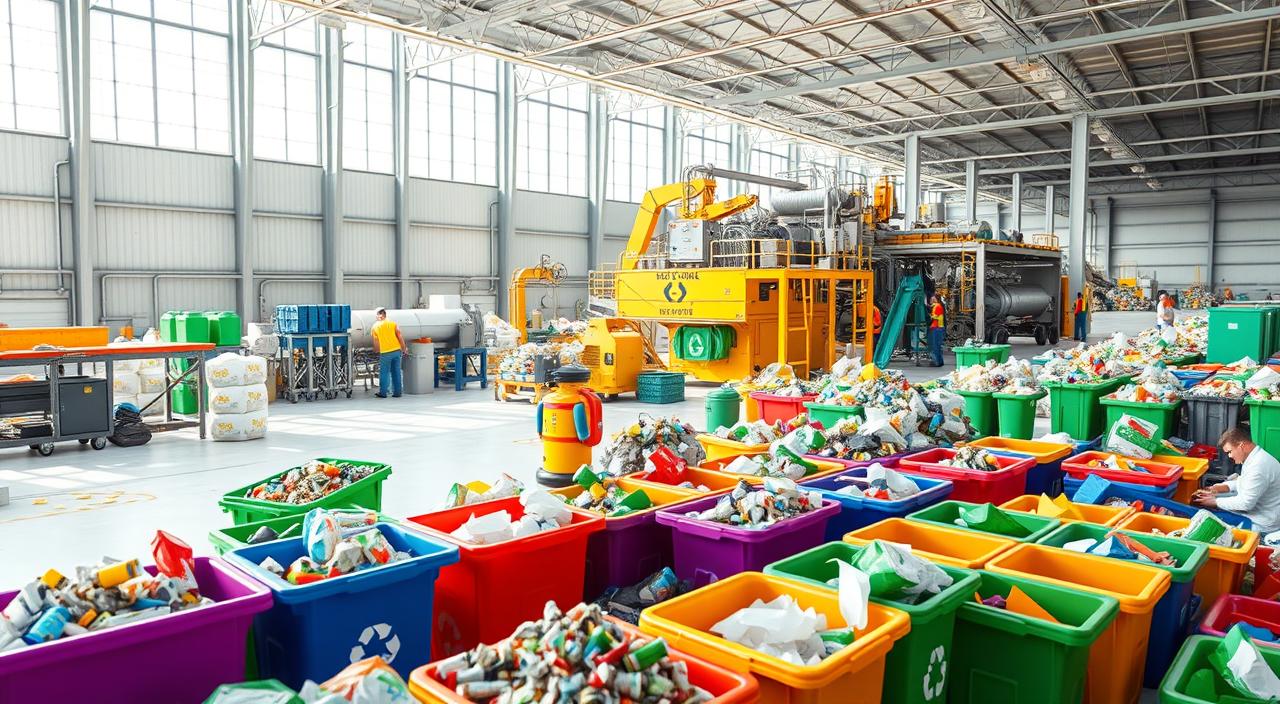
- Greenhouse gas emissions savings equivalent to £11.8 billion
- Less waste sent to landfill or incineration
- Growth of the UK reprocessing industry and creation of green jobs
Improving recycling rates and reducing waste will help the UK move towards a circular economy. This means resources are used more efficiently, and waste is greatly reduced.
The Four Waste Streams Explained
The four-bin system in London makes sorting waste easier. It’s designed to boost recycling rates and cut down on contamination. This makes it simpler for residents to manage their waste effectively.
Dry Recyclables: Plastic, Metal, Glass, Paper and Card
Dry recyclables include plastic, metal, glass, paper, and card. These can go in the dry recyclables bin. Items like:
- Rinsed plastic containers and bottles
- Metal items such as drinks cans, food tins, and aluminium foil
- Glass items like drinks bottles and food jars (which should be rinsed)
- Paper and cardboard materials, including newspapers, envelopes, and cardboard packaging
Paper and card can be recycled, but they might need to be separated from other materials. Check with your waste collector to see if they can be collected together.
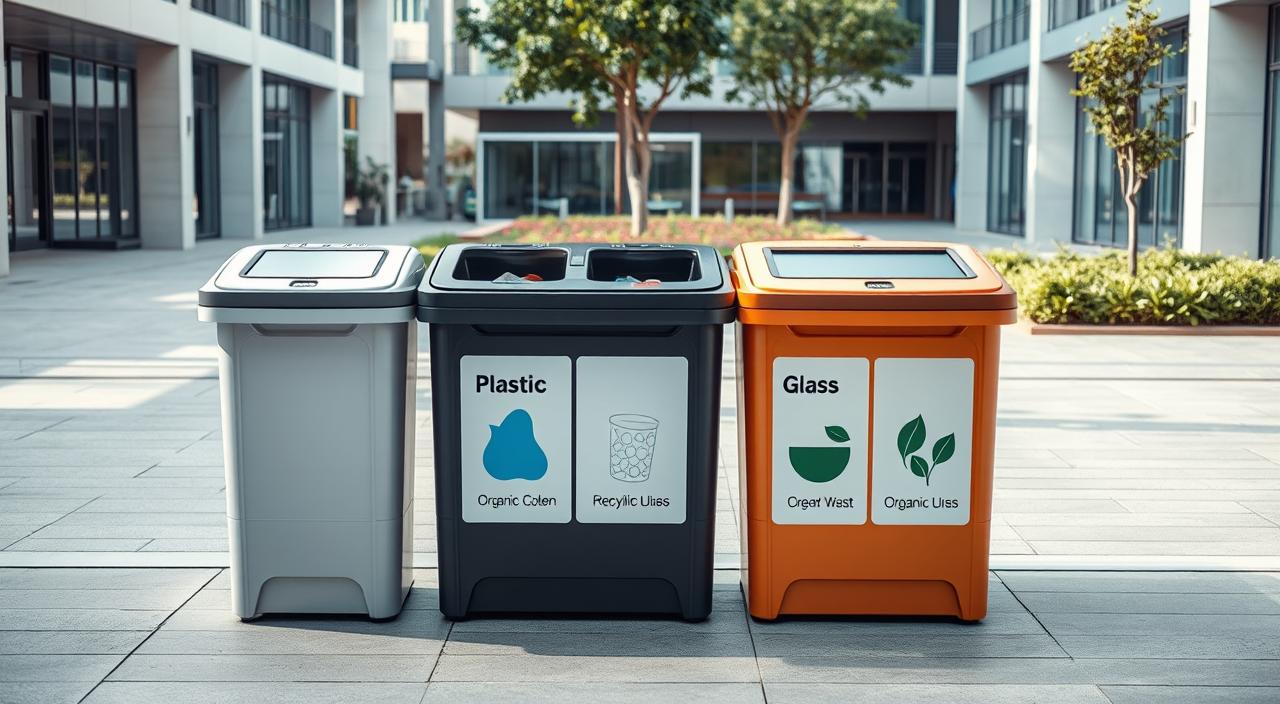
Food Waste Collection
Food waste collection is now mandatory for all workplaces, with or without kitchens. There’s no minimum weight for food waste. This includes:
- Leftovers from staff lunches
- Food preparation waste, such as onion skins and apple cores
- Coffee grounds and tea bags
But, ‘compostable’ or ‘biodegradable’ items can’t be recycled with food waste. However, caddy liners used for food waste are okay.
Non-Recyclable Waste
Non-recyclable waste, or residual waste, includes items that can’t be recycled or composted. It must be collected separately to avoid contamination. Examples include certain packaging and non-recyclable plastics.
Garden Waste
If your business has garden waste, it must be recycled or composted. Garden waste includes grass cuttings, plant prunings, leaves, and small branches. Proper disposal helps reduce landfill waste.
Recycling Rules UK: What Can and Cannot Be Recycled
With new recycling rules in the UK, it’s crucial to know what can and can’t be recycled. The success of the four-bin system depends on public understanding of recyclable materials.
Acceptable Items for Each Bin
The four-bin system sorts waste into dry recyclables, food waste, non-recyclable waste, and garden waste. Knowing what goes in each bin is key for good recycling.
- Dry recyclables include clean glass, metal cans, and plastic bottles. Also, clean paper and cardboard are okay.
- Food waste bins take leftovers, fruit peels, and tea bags. But, no ‘compostable’ or ‘biodegradable’ packaging.
- Garden waste bins accept grass, plant prunings, and leaves. But, no soil, stones, or treated wood.
Items That Should Never Go in Your Recycling
Some items can ruin recycling. They include:
- Glass cookware, drinking glasses, ceramics, and window glass.
- Laminated foil pouches, electrical items, batteries, and hazardous packaging.
- Polystyrene, plastic toys, garden furniture, tissues, toilet paper, nappies, sanitary products, medical waste, and pet litter.
If unsure, put it in the non-recyclable bin. Black plastic is hard to recycle. Check with your local authority about disposal.
Practical Tips for Londoners
Londoners can help the four-bin system by recycling better. Simple changes in daily habits can make a big difference.
Preparing Items for Recycling
Preparing items right is key for recycling. Empty and rinse containers to avoid contamination. Plastic bottles, food containers, and cans should be clean before recycling.
- Empty and rinse plastic bottles and containers to prevent contamination.
- Squash plastic bottles and cardboard boxes to save space in your recycling bin.
- Leave metal lids and caps on glass jars and bottles; they will be removed and recycled separately.
Storage Solutions for Small London Homes
Small homes and flats face space challenges for recycling bins. Use stackable bins, under-sink systems, or collapsible containers. Designate a recycling area in your kitchen with labelled bins.
Special Waste Categories and Where to Take Them
London is improving waste management. Knowing how to dispose of special waste is important. This includes electronics, batteries, textiles, and furniture.
Electronics and Batteries
Electronics and batteries have hazardous materials. Don’t put them in regular bins. Take them to recycling centres or retailers. Many places collect batteries and electronics.
Textiles and Furniture
Donate good condition textiles and clothing. Place them in textile bins or charity shops. Furniture should go to recycling centres for proper recycling. Some charities and local authorities offer collection services for furniture.
Conclusion: Embracing the Future of Waste Management
The UK government is introducing a four-bin system for recycling across the country. This move aims to increase recycling rates from 44-45% to 65% by 2035. The goal is to make recycling more standardised in homes, businesses, and public places.
Local authorities will be key in making this system work. They will ensure that paper, card, and other recyclables are collected properly. Success relies on everyone’s effort, from households sorting food waste to businesses teaching employees how to sort waste correctly.

